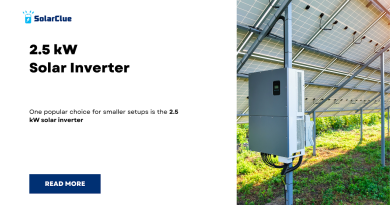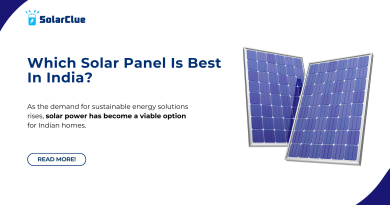Do All Solar Panels Have Bypass Diodes
Bypass diodes are a critical component in solar panels, designed to protect the system from issues like shading and cell damage. However, not all solar panels have them, and their presence or absence can significantly impact the performance and longevity of a solar energy system. This comprehensive guide explores the role of bypass diodes, their benefits, the potential consequences of their absence, and how they influence the performance of solar panels.
Table of Contents
- 0.1 1. The Role of Bypass Diodes in Solar Panels
- 0.2 2. The Benefits of Using Bypass Diodes
- 0.3 3. The Potential Consequences of Not Using Bypass Diodes
- 0.4 4. Different Types of Bypass Diodes Used in Solar Panels
- 0.5 5. The Impact of Bypass Diode Failures on System Performance
- 0.6 6. Choosing the Right Bypass Diodes for Your Solar System
- 0.7 7. The Future of Solar Panels and Bypass Diode Technology
- 0.8 8. Case Studies of Solar Panel Systems with and Without Bypass Diodes
- 0.9 9. Common Misconceptions About Bypass Diodes in Solar Panels
- 1 FAQs About Bypass Diodes in Solar Panels
- 2 Table: Comparison of Bypass Diode Types in Solar Panels
- 3 Conclusion
1. The Role of Bypass Diodes in Solar Panels
Bypass diodes are semiconductor devices integrated into solar panels to prevent energy losses and protect solar cells when part of the panel is shaded or damaged. Here’s how they work:
- Protection from Shading: Solar panels are made up of multiple solar cells connected in series. When one cell is shaded or fails, it can cause a significant drop in the overall output of the panel because it creates a high-resistance path that restricts current flow. Bypass diodes provide an alternative path for the current, allowing electricity to bypass the shaded or damaged cell, minimizing the impact on the panel’s performance.
- Heat Reduction: When a cell is shaded, it can cause localized heating, known as a “hot spot,” which can damage the solar panel. Bypass diodes help prevent this by redirecting the current around the affected cell, reducing the risk of overheating.
2. The Benefits of Using Bypass Diodes
Bypass diodes offer several key benefits:
- Maintained Performance: In partial shading conditions, bypass diodes ensure that the unshaded portions of the solar panel continue to operate efficiently, maintaining the overall power output of the system.
- Increased System Reliability: Bypass diodes protect the solar panel from damage due to shading, debris, or other obstructions, which can extend the lifespan of the system.
- Prevention of Hot Spots: By mitigating the effects of shading, bypass diodes help prevent the formation of hot spots, which can cause permanent damage to solar cells and reduce the efficiency of the panel.
3. The Potential Consequences of Not Using Bypass Diodes
The absence of bypass diodes can lead to several issues:
- Significant Power Losses: Without bypass diodes, shading on a single cell can reduce the output of an entire string of cells, leading to substantial power losses.
- Increased Risk of Damage: Solar panels without bypass diodes are more susceptible to damage from hot spots, which can degrade the cells and reduce the overall lifespan of the system.
- Higher Maintenance Costs: The increased risk of damage and performance loss can lead to higher maintenance and replacement costs over time.
4. Different Types of Bypass Diodes Used in Solar Panels
Several types of bypass diodes are used in solar panels, each with its characteristics:
- Silicon Diodes: The most common type, silicon diodes, are reliable and widely used in conventional solar panels. They are cost-effective but may have slightly higher forward voltage drops compared to other types.
- Schottky Diodes: Schottky diodes have lower forward voltage drops and faster switching times, making them more efficient in bypassing current. However, they are typically more expensive than silicon diodes.
- Field-Effect Transistor (FET) Diodes: FET diodes, while not as common, offer very low resistance and are used in advanced solar panel systems that require high efficiency and precision.
5. The Impact of Bypass Diode Failures on System Performance
Bypass diode failures can have serious implications:
- Reduced Panel Efficiency: A failed bypass diode can prevent the current from bypassing a shaded or damaged cell, leading to reduced overall panel efficiency and power output.
- Increased Heat Generation: If a diode fails in an open state, it can cause overheating of the affected solar cells, potentially leading to permanent damage.
- Increased Maintenance Requirements: Diagnosing and replacing failed bypass diodes can be complex and costly, especially in large solar installations.
6. Choosing the Right Bypass Diodes for Your Solar System
When selecting bypass diodes for a solar system, consider the following factors:
- Panel Type: Different panel technologies may require specific types of bypass diodes. For instance, high-efficiency panels might benefit from Schottky diodes due to their lower forward voltage drop.
- Environmental Conditions: The operating environment can impact the choice of diodes. In high-temperature environments, diodes with better heat tolerance and lower leakage current may be preferable.
- Cost vs. Performance: Balance the cost of the diodes with the expected performance gains. While more advanced diodes may offer better efficiency, they also come at a higher price.
7. The Future of Solar Panels and Bypass Diode Technology
The future of bypass diode technology is evolving, with innovations aimed at improving efficiency and reducing costs:
- Integrated Electronics: Future solar panels may feature integrated electronics that can dynamically manage current flow, reducing the need for traditional bypass diodes.
- Advanced Materials: Research into new materials for diodes, such as graphene-based technologies, could lead to diodes with even lower resistance and higher durability.
- Smart Bypass Solutions: Emerging technologies are exploring smart bypass systems that can optimize the flow of electricity in real-time, adapting to changing conditions and further minimizing losses.
8. Case Studies of Solar Panel Systems with and Without Bypass Diodes
- Residential Solar Installation (With Bypass Diodes): A homeowner in a shaded area installed solar panels equipped with bypass diodes. Despite partial shading during certain times of the day, the system maintained high efficiency, demonstrating the effectiveness of bypass diodes in real-world conditions.
- Commercial Solar Farm (Without Bypass Diodes): A large commercial solar farm without bypass diodes experienced significant power losses during periods of partial shading, leading to a decrease in overall system performance and increased maintenance costs due to hot spot damage.
9. Common Misconceptions About Bypass Diodes in Solar Panels
- “All Solar Panels Have Bypass Diodes”: While most modern solar panels are equipped with bypass diodes, not all panels have them, especially older or lower-cost models.
- “Bypass Diodes Eliminate All Shading Issues”: Bypass diodes help mitigate the impact of shading but do not completely eliminate losses. Proper system design and placement are still critical for optimal performance.
- “Bypass Diodes Never Fail”: Bypass diodes can and do fail, which is why regular maintenance and monitoring are essential for long-term system reliability.
FAQs About Bypass Diodes in Solar Panels
Q1: Do all solar panels have bypass diodes?
A1: Not all solar panels have bypass diodes. While most modern panels do, some older or lower-cost models may not include them.
Q2: What is the main function of a bypass diode in a solar panel?
A2: The main function of a bypass diode is to allow current to bypass a shaded or damaged cell in a solar panel, preventing power loss and protecting the panel from damage.
Q3: What happens if a solar panel doesn’t have bypass diodes?
A3: Without bypass diodes, a shaded or damaged cell can significantly reduce the power output of the entire panel, and may lead to overheating and potential damage to the cells.
Q4: Are bypass diodes necessary for all types of solar panels?
A4: Bypass diodes are particularly important for panels installed in areas prone to partial shading. For installations with no shading issues, their importance is reduced but still beneficial.
Q5: Can bypass diodes fail?
A5: Yes, bypass diodes can fail, and when they do, they can reduce the efficiency of the solar panel and increase the risk of damage to the cells.
Q6: How do I know if my solar panel has bypass diodes?
A6: Most manufacturers include this information in the product specifications. You can also consult with your installer or check the panel’s junction box for diodes.
Q7: What types of bypass diodes are used in solar panels?
A7: Common types include silicon diodes, Schottky diodes, and FET diodes, each with its own advantages in terms of efficiency and cost.
Q8: How do bypass diodes impact the overall efficiency of a solar panel system?
A8: Bypass diodes help maintain system efficiency by minimizing the impact of shading or cell damage, ensuring that unaffected cells continue to produce power.
Table: Comparison of Bypass Diode Types in Solar Panels
| Diode Type | Advantages | Disadvantages | Common Applications |
|---|---|---|---|
| Silicon Diodes | Reliable, cost-effective | Slightly higher forward voltage drop | Conventional solar panels |
| Schottky Diodes | Lower forward voltage drop, faster switching | Higher cost, higher leakage current | High-efficiency solar panels |
| FET Diodes | Very low resistance, high efficiency | Expensive, more complex circuitry | Advanced solar systems requiring precision |
Conclusion
Bypass diodes play a crucial role in the performance and longevity of solar panels, especially in environments where shading is a concern. Understanding their function, benefits, and the potential consequences of their absence can help you make informed decisions about your solar energy system. As technology advances, bypass diodes will continue to evolve, offering even greater efficiency and reliability for solar installations. Whether you’re a homeowner, installer, or solar enthusiast, knowledge about bypass diodes



